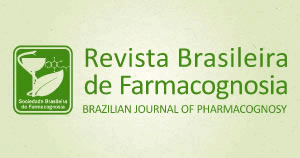The objective of this research was to estimate the acute toxicity of the extract of clove (Syzygium aromaticum Linné) in rodents. The 80% hidro-alcoholic extract was concentrated in rotary evaporator until a final resinous mixture extract was obtained. Albino female mice (Mus musculus), divided in 13 lots of six animals were observed for 24 hours. The extract diluted in 0.9% physiologic solution was administrated at the dosages of 137.5; 180.0; 187.5; 250.0; 375.0; 437.5; 500.0 and 1,000 mg/kg through intraperitoneal route and 1000; 2,400; 2,880; 4,000 and 5,000 mg/kg through oral route. A proportional calculation was carried out in order to have the same dose for the animals in each group. The punctures were gotten by intraperitoneal route in intervals of five minutes among the individual doses. For the oral toxicity the solution was introduced in the digestive system of the animals through coupled metallic stem syringe (gavage). The animals presented non lethal toxic signs up to 5,000 mg/kg. DL50 was established by the method of Karber and Behrens (1964). LD50 was estimated in 255 mg/kg (highly poisonous, degree 4). It can be concluded that under acute conditions of exposure, the extract of clove is a poisonous agent and it should be considered as such, depending on the administered or absorbed dose, time and frequency exhibition and administration routes.
Syzygium aromaticum; Myrtaceae; toxicology; phytotherapy

